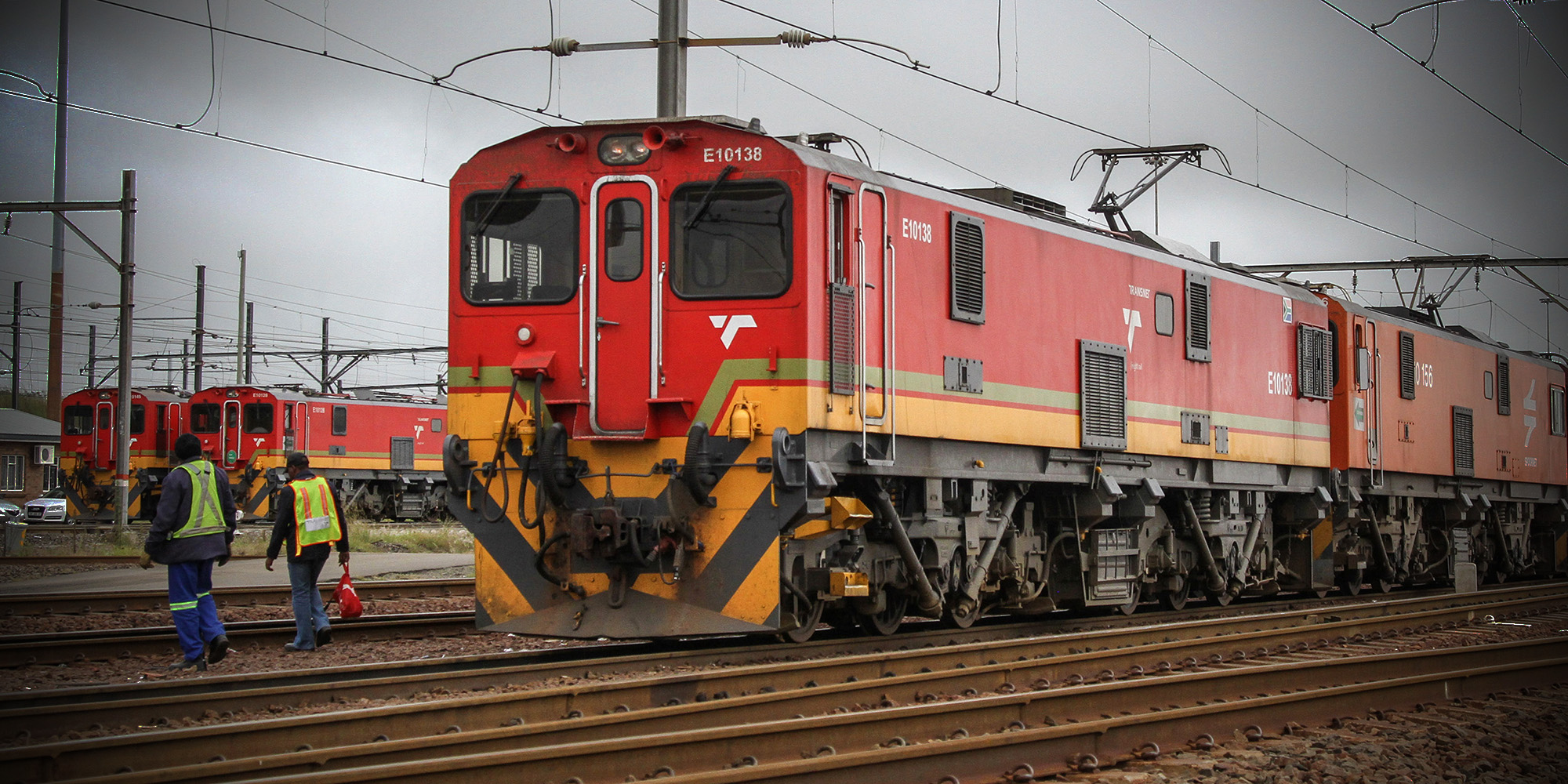Siza Mzimela, the CEO of Transnet Freight Rail — the division that is responsible for railing goods to market — has hit back at mounting criticism that the state-owned logistics and freight group is completely failing to deliver on its most basic function: that of keeping trains moving.
This, critics say, poses a direct threat to South Africa’s economy.
“I don’t believe that we have lost control [of rail operations] and there is nothing that demonstrates that we have lost control,” argued Mzimela.
Transnet Freight Rail is the state-owned enterprise’s largest division and contributes the bulk of its R69-billion in revenue.
Mzimela was speaking at a media briefing on Tuesday about Transnet’s recovery from a damaging 12-day strike that brought some of its port and rail operations to a standstill.
Hobbling along
During the strike, vessels were stuck outside Transnet’s terminals and faced delays in docking, existing shipping backlogs worsened and infrastructure theft spiked, further hobbling freight rail services.
Transnet saw 12km of cabling stolen during the industrial action, mostly on the rail container corridor between Johannesburg and Durban. No arrests have been made.
“We are looking at a 22% increase in cable theft just on the container corridor over the course of the strike,” said Rudzani Ligege, Transnet managing executive for operations in the area, at the same media briefing.
Locomotives were also vandalised during the strike.
In the face of ongoing setbacks, the mining industry has slammed Transnet for its failure to perform. The sector relies heavily on Transnet to load thousands of tonnes of iron ore, coal, chrome, ferrochrome and manganese on to ships every day.
Mzimela says the criticism is unfair.
For Transnet Freight Rail’s inability to get goods to market, Mzimela has blamed many factors including adverse weather conditions (the flooding in KZN in April) and a locust infestation that makes the train tracks “slippery”.
She has also pointed to the fewer rail slots available to customers and existing ones being booked to capacity.
Visit Daily Maverick’s home page for more news, analysis and investigations
Despite these problems, Mzimela said that “mining companies continue to generate revenue”, inferring that such companies remain resilient and can withstand Transnet’s failures.
To a certain extent, Mzimela is right. Mining companies such as Exxaro, South32, Thungela Resources (to name a few) are making money. But the revenue is trending downward partly because of inefficiencies in Transnet’s operations. The mining companies are forced to find alternative ways to move their goods, such as trucking coal by road.
In 1996, Transnet moved 56 million tonnes of coal by rail to the Richards Bay coal terminal. Coal volumes peaked in 2017 at 76 million tonnes, but fell to 72 million tonnes in 2020.
In 2021, volumes were down again to 58 million tonnes.
Despite the recent strike, Transnet Freight Rail said it still aims to haul 60 million tonnes of coal in its financial year through March 2023, an increase from the previous year.
But the mining industry has pencilled in a further decline to 49 million tonnes in 2022 and 2023.
As Covid lockdowns ended, Transnet’s revenue should have grown strongly (it remained flat) because global prices of commodities such as coal and iron ore hit record highs.
The revenue of mining companies remained flat or went into decline. Instead of reaping a windfall, these companies had to cut production because hundreds of Transnet’s trains could not arrive on time or even run at all.
Dispute with South China Rail
Transnet has been in a dispute with South China Rail over a corrupt State Capture contract for 1,064 locomotives, which was declared illegal.
Because of this, Transnet was unable to procure spare parts for the locomotives from the original manufacturers (South China Rail, also described as an OEM).
This resulted in 311 new locomotives standing idle.
“We paid for the locomotives. We don’t have the spare parts to run and repair the locomotives. We can only get parts from the OEMs,” said Mzimela.
With South China Rail ruled out as an OEM partner for Transnet, Mzimela said the company is relying on other service providers, including Alstom, which recently acquired Bombardier Transportation (BT), and “other Chinese partners”.
“We have an in-principle agreement with them — the Chinese and BT Alstrom. This will allow us to have sufficient locomotives to carry us for the next three to four years.
“We have enough locomotives in the system,” said Mzimela. DM/BM





